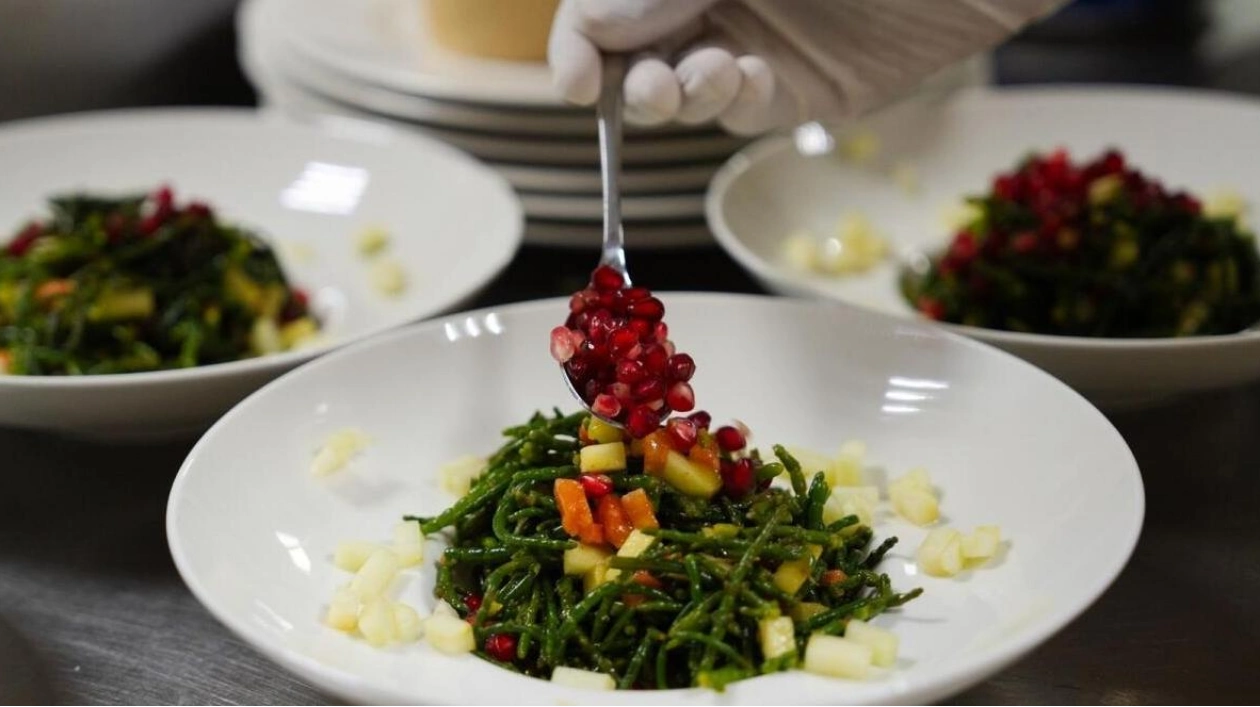Did you know that incorporating a locally grown superfood into your meals can enhance their nutritional value and support food security in the UAE? The halophytes Salicornia and Arthrocaulon, which thrive in salty water, are easily cultivated in the UAE and add a salty flavor to dishes while also boosting their health benefits. Studies on Salicornia grown in Umm Al Quwain's coastal regions have shown high levels of essential minerals, vitamin B12, and antioxidants. Experts are urging local restaurants to include these plants in their menus, as they can be naturally grown along the coast, promoting a local farm-to-table dining experience.
Laila Mostafa Abdullatif, Director General of Emirates Nature-WWF, highlighted the importance of halophytes, stating, 'Over the past few years, we have gathered significant scientific evidence supporting halophytes as a high-potential, nature-based solution in the UAE. We are working with partners to develop a business case for commercial cultivation of halophytes and are eager to collaborate with chefs, investors, and entrepreneurs to introduce this promising local ingredient to the market.'
BOCA, a Michelin green star restaurant, has started using halophytes in its dishes. Omar Shihab, the founder, emphasized the importance of these ingredients, stating, 'If we scale up the use of halophytes commercially, we open new avenues for businesses to invest in a nutritious ingredient.' Last month, Shihab, along with Emirates Nature-WWF and the International Centre for Biosaline Agriculture (ICBA), organized a culinary session for top chefs and restaurateurs to explore the potential of using halophytes in their dishes.
The event, held at the mangrove reserve in Umm Al Quwain, showcased the ecological benefits of cultivating halophytes, followed by a cooking session where chefs Patricia Roig, Kelvin Cheung, and Luca Cobre demonstrated dishes using the ingredient. Shihab noted, 'Halophytes are not only climate-resilient but also act as strong carbon sinks, benefiting local communities, climate mitigation efforts, and biodiversity conservation. It's crucial to explore commercial growth of these crops.'






